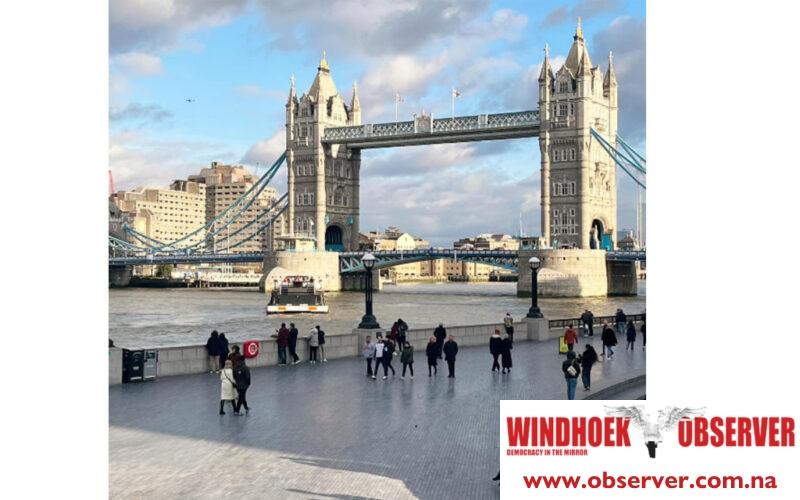Ester Mbathera
Adrianus Vugs, a financial expert and actuary has asked whether Namibia should consider aligning its development agenda with the spending habits of wealthy individuals leaving the United Kingdom (UK).
Vugs raised this question last week in relation to the ongoing trend of UK millionaires relocating due to the high cost of living in their home country.
“Millionaires are leaving the country because they feel like they are broke and poor in the UK. For example, a glass of freshly squeezed orange juice will cost you between £5 and £10, which is enough to buy more than 10 kg of oranges. A good-quality sirloin will cost you about £60 to £80 per kg. For 10 kg, you can buy an entire cow in Namibia, and the property prices are ridiculous. You can get the equivalent of a one-bedroom apartment in London for £500 000, a proper house anywhere else,” he said.
Vugs questioned whether Namibia should develop its economic policies to attract and cater to these wealthy expatriates.
He suggested that such a strategy might not be the best approach for Namibia’s long-term development.
“My question is, why do we need them here? Should we have a development agenda based on the spending patterns of the wealthy in the UK? Is that a plan for a country that has the potential that we do? I think not,” he said.
He suggests that the country’s growth should rely on educating and employing its own population rather than depending on the unpredictable ventures of the rich.
“We have about three million people, we need to educate all of us, prioritise us and put all of us to work in the interest of Namibia. Nothing else will build this country,” he said.
Henley and Partners, a global advisor on migration, reported in the recent Private Wealth Migration Report 2024 that there is a significant wealth migration from the UK.
The organisation acknowledged Namibia’s highly stable political and economic environment.
“The southwest African country of Namibia is one of the continent’s prime tourist destinations, with abundant wildlife and some of the highest dunes in the world. Namibia is considered among the safest nations in Africa, with an impressive infrastructure and an excellent quality of life,” said the organisation.
Last month, The Namibian newspaper reported that the Namibia Investment Promotion and Development Board (NIPDB) has urged the government to grant wealthy foreigners with an interest in buying Namibian retirement farms permanent residency.
In a leaked letter, NIPDB chief executive officer, Nangula Uaandja asked the executive director of home affairs, immigration, safety and security, Etienne Maritz, to meet with the immigration selection board and approve permanent residency for high-net-worth individuals.
She said approving visas to wealthy UK citizens would be done under the initiative, code-named ‘Desert Visa Programme’, which aims to attract foreign money and boost Namibia’s economic development.
“These high-net-worth individuals are interested in various investment opportunities, including the purchase of long-term lease farms for retirement, investing equity in local businesses, and other ventures that contribute to the economic development of our country,” Uaandja says.
The government is currently reviewing the process for obtaining residency through investment in Namibia.
Retired police Major General James Tjivikua raised concerns about the ethical implications and potential negative impacts of the Golden Visa program.
He questions the morality of selling land to foreigners while indigenous people remain landless and emphasises the risks of increasing inequality, security threats, and real estate inflation.
“The quest for land and the ancestral land claim, especially among poor communities affected by the 1904–1908 genocide, have not yet been adequately addressed, and the land resettlement program leaves much to be desired. Therefore, the proposed golden visa program should be open and above board. Otherwise, it would aggressively irritate septic wounds that are already incapable of healing to this day,” said Tjivikua.




